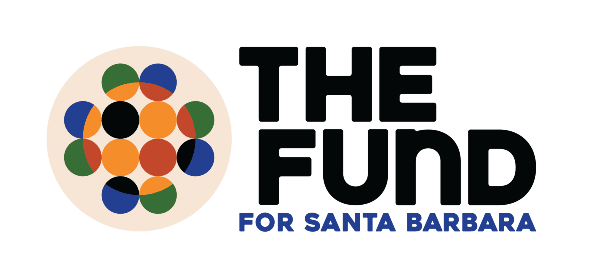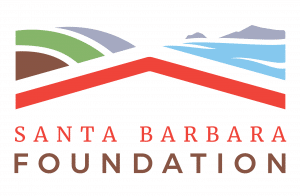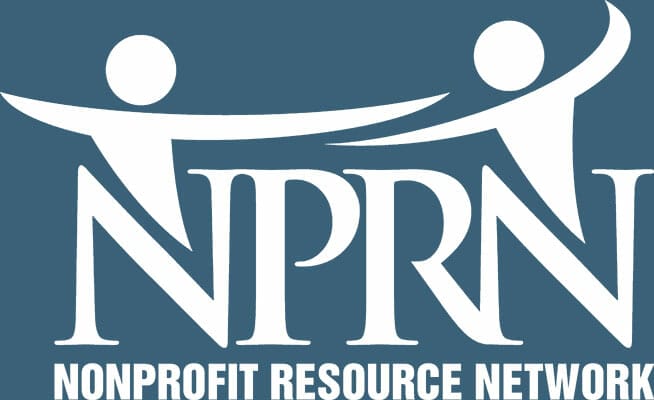Santa Barbara County
Nonprofit Resource Directory
The key to strengthening the social sector is for nonprofit leaders and organizations to have the knowledge, skills, and resources to fulfill their mission. A healthy social sector improves the social outcomes for our communities – strong nonprofits lead to a strong community.
To that end, we have curated a catalog of resources we encourage you to consider in your effort
to develop your organization and your own nonprofit career.
Resource Categories:

Language Access
Multilingual spaces contribute to building language inclusivity and increase the participation and engagement of diverse community members. Below are some resources that can help your organization increase language inclusivity within your organization, programs, events, and communications.
- DeepL Translator is a web-based translator built from AI software to provide highly accurate and nuanced translations in a variety of languages. User can paste text, add PDFS, Word documents, and PowerPoints for translation.
- Interactio is an online interpretation service that provides interpreters for online/hybrid virtual events, meetings, and programs. They also offer translation services.
- Language Network offers document translation services, interpretation, and consulting in over 200 languages.
- Translate.com is a web-based professional translation that offers machine translation and human translation services.
Physical Access
Accessible spaces contribute greatly to community inclusion and engagement of diverse community members.
- Independent Living Resource Center (ILRC) offers a variety of accessibility services and has a great resource page.

Advocacy can take many forms. In simple terms, it can mean making the case for your cause or mission. But it can be any one of a number of things, from research and public education to lobbying elected officials and voter engagement. It can be a powerful tool when serving underrepresented communities and can be done well and in compliance with IRS regulations.
For any agency interested in engaging in advocacy to support and advance their mission, we suggest the following resources:
- Alliance for Justice is a national association of environmental, civil mental health, women’s, children’s and consumer advocacy organizations working to advance justice for all Americans. Offers free resources and information on how nonprofits can lobby.
- Bolder Advocacy equips nonprofits with the knowledge they need to be confident and powerful advocates. Their staff attorneys conduct workshops and trainings around the country and one-on-one technical assistance by phone and email. Their coaching helps nonprofit leaders become stronger advocates for their missions and empowers them to speak up.
- California Association of Nonprofits’ “Vote with Your Mission” initiative provides a number of helpful resources for effective nonprofit voter engagement.
- California League of Women Voters, for resources on hosting candidate forums and making ballot measure presentations.
- California Legislative Information is a website with the most up-to-date information on bills working their way through the California Legislature.
- Causes Count: The Economic Power of California’s Nonprofits is a report on the economic impact of California’s nonprofit sector, including the relationship between government and nonprofits, disparities within the sector, nonprofits as an economic driver, and major employer.
- The Center for Third World Organizing (CTWO) (pronounced “C-2”) is a racial-justice organization dedicated to building a social justice movement led by people of color. Established in 1980, CTWO is a training and resource center that promotes and sustains direct-action organizing in communities of color in the United States.
- Strategic Concepts in Organizing and Policy Education (SCOPE) builds grassroots power to create social and economic justice for low-income, female, immigrant, Black, and brown communities in Los Angeles.
- Western States Center is building a progressive movement for social, economic, racial, and environmental justice in the western states.

The health and sustainability of a nonprofit organization depends on how effectively its Board of Directors governs. Below are some resources some of the mostly widely consulted sources of information about nonprofit governance.
- Board Source (formerly National Center for Nonprofit Boards) is dedicated to increasing the effectiveness of nonprofit organizations by strengthening their boards of directors. Provides topic papers, books, and other publications.
- BlueAvocado is an online newsletter full of practical, provocative and fun food-for-thought for nonprofits.
Board Leadership Institute at the Center for Nonprofit Leadership — A strong board is key for a successful nonprofit. Your leadership team can learn and adopt the practices of high performing boards. Offered by the Center for Nonprofit Leadership at Cal Lutheran, this five-month certificate program will enhance the knowledge and skills among leadership teams comprised of nonprofit board members and their head of staff (CEO or Executive Directors).

Nonprofit organizations promote civic engagement through programs and activities that: engage volunteers and donors; bring community members together; collaborate with organizations within and beyond the community, and promote community education and awareness. A key component of this work is engaging with elected officials and governing bodies of communities. Below are some resources to consider in your civic engagement efforts:
- To register to vote in the state of California, visit registertovote.ca.gov
- Vote with Your Mission is CalNonprofits’ campaign to have 100% of eligible nonprofit staff, board members, and volunteers votes. There are 1.5 million nonprofit organizations in the U.S. that, taken together, employ over 13.5 million people, rely on 61 million volunteers, and serve millions more. Imagine if everyone we touched voted with their values!
- California Legislative Information is a website with the most up-to-date information on bills working their way through the California Legislature.
- League of California Cities is an association of California city officials who work together to enhance their knowledge and skills, exchange information, and combine resources so that they may influence policy decisions that affect cities. Their website host a number of resources including detailed information on the Open Meeting Law (Brown Act).
Santa Barbara County Municipalities
Community Services Districts
For a complete list of community service districts, please visit the Local Agency Formation Commission (LAFCO) website.
Santa Barbara County
State Of California
- Governor Gavin Newsom
- State Assembly Member Monique Limón
- State Assembly Member Steve Bennett
- State Assembly Member Jordan Cunningham
Federal

- FEMA – Organizations Preparing for Emergency Needs (OPEN) Training includes both a web-based, self-guided training, and a downloadable instructor kit that will guide participants on how to identify risks, locate resources, and take preparedness actions. When Community-Based Organizations, such as food pantries, daycares, and non-profits, are unable to sustain operations during an emergency incident, individuals who rely on them are exponentially impacted. Because of their importance in keeping the community going, OPEN is designed to empower these organizations to better prepare for incidents. The OPEN training provides an overview of the 10 preparedness actions and creates a path forward for organizations to develop their own disaster response plan.
- Volunteer Organizations Active in Disaster (VOAD) – As one of the leading disaster preparedness non-profit local agencies in the Santa Barbara area, VOAD attributes their reputation to the lasting relationships we’ve developed throughout the years. VOAD believes their partners and members deserve a voice in cooperating, communicating, coordinating, and collaborating in response to and planning for disaster events.
- Deloitte Scenario Planning – Navigating Uncertainties in the Social Sector – COVID-19 scenario planning for nonprofit and philanthropic organizations. The COVID-19 crisis has created a moment of hyper-uncertainty for social sector organizations. No one knows how the future will unfold, but the tools of scenario planning can help social sector leaders better prepare their organizations for the different, possible futures that may unfold.

Below is a selection of resources to support nonprofits who either incorporate, or are working to incorporate, the principles of diversity, equity, inclusion and accessibility into their organizational culture.
- Central Coast Regional Equity Initiative – The Fund for Santa Barbara and UCSB Blum Center on
Poverty, Inequality, and Democracy - Diversity Toolkit: A Guide to Discussing Identity, Power and Privilege – USC School of Social Work
- How to Begin Equity Work in Your Organization with Little or No Money – North Carolina Center for Nonprofits
- Race Equity and Inclusion Action Guide – Annie E. Casey Foundation
- Diversity, Equity, Accessibility, and Inclusion – American Alliance of Museums
- Principles of Inclusion, Diversity, Access, and Equity – Tina Q Tan, The Journal of Infectious Diseases
- Test your implicit biases with Project Implicit’s FREE Implicit Association Test (IAT)

What does success look like for your organization? How do you know the work you do is having an impact? Does your organizational culture support evaluating the difference your nonprofit is making? Below are a number of resources to help your organization engage in evaluation and learning in the spirit of continuous improvement and greater impact.
- National Council of Nonprofits – Evaluation and Measurement of Outcomes – Whether your nonprofit engages in formal “evaluation,” monitors progress towards specific goals, or uses feedback loops to learn what’s working and what’s not, each of these activities is a type of “performance measurement.” What makes the most sense for your nonprofit? Here are some resources to help your organization along an intentional path that we hope will lead to the most effective delivery of your nonprofit’s programs and services, and advancement of its mission.
- IssueLab by Candid – Measure Results – Need practical “how-to” info that aims to help you build your evaluation capacity? This collection includes suggested readings from our friends at BetterEvaluation, the Center for Evaluation Innovation, the Center for Effective Philanthropy, and Grantmakers for Effective Organizations as well as hand-picked content by IssueLab.
- Basic Guide to Program Evaluation (Including Outcomes Evaluation) – This document provides guidance toward planning and implementing an evaluation process for for-profit or nonprofit programs — there are many kinds of evaluations that can be applied to programs, for example, goals-based, process-based, and outcomes-based.
- WK Kellogg Foundation – The Step-by-Step Guide to Evaluation, How to Become Savvy Evaluation Consumers – This handbook provides a framework for thinking about evaluation as a relevant and useful program tool. It was written primarily for project directors who have direct responsibility for the ongoing evaluation of projects.
- WK Kellogg Foundation – Doing Evaluation in the Service of Racial Equity – A series of three publications focused on Debunking Myths, Diagnosing Biases and Systems, and Deepening Community Engagement to advance racial equity.
- My Healthy Organization helps your organization take stock of your work, structure, and culture, and decide what you want to strengthen for the future. Specifically designed for organizations committed to developing community leadership and making change.
Listen4Good promotes high-quality listening and equity-driven feedback practices across the social sector by providing nonprofits and government agencies with an end-to-end system for soliciting and responding to direct client feedback about what’s working (and not) from their perspective.

Below are resources to help equip your staff, board and/or finance committee members with best practices around financial oversight and compliance issues.
- Compliance Checklist – compiled by CalNonprofits, this handy comprehensive checklist helps nonprofit 501(c)(3) organizations — charities — keep up-to-date with annual filing requirements. All in one place, with links to the resources you need if you have questions.
- Fair Pay for Southern California Nonprofits Report – Nonprofit Compensation Associates surveys and produces a report of compensation and benefits for the NorCal and SoCal nonprofit sectors every year.
- BDO FMA – BDO FMA works with nonprofits and grantmakers to develop the fiscal management capacity they need to fulfill their missions efficiently and effectively. Their consulting, coaching and training services equip nonprofit leaders with the tools to monitor and manage financial performance and develop a culture of Operational Excellence.
- Fiscal Sponsorship – Greg Colvin of Adler & Colvin is an attorney and expert in tax law for nonprofits including best practices for fiscal sponsorships.
- IRS Compliance Guide for 501(c)(3) Public Charities – In this publication, the IRS addresses activities that could jeopardize a public charity’s tax-exempt status. It identifies general compliance requirements on record keeping, reporting, and disclosure for exempt organizations (EOs) described in section 501(c)(3) of the Code that are classified as public charities.
- Nonprofit Finance Fund provides financial resources, in the form of loans, grants, and asset-building programs, in concert with management advice. NFF works directly and with funders to strengthen these organizations and the system by which they are funded.
- Nolo LAW for ALL helps consumers and small businesses find answers to their everyday legal and business questions.
- Public Counsel Law Center is the nation’s largest not-for-profit law firm specializing in delivering pro bono legal services. Public Counsel annually assists more than 30,000 families, children, immigrants, veterans, and nonprofit organizations and addresses systemic poverty and civil rights issues through impact litigation and policy advocacy.
- StrongNonprofits Toolkit – Resources to strengthen your nonprofit financial management.
- Propel Nonprofits – Propel Nonprofits provides consulting and coaching designed to equip your organization with financial tools and resources that provide insight and ultimately empower nonprofit boards and staff to make decisions with confidence.

Nonprofit fundraising is the lifeblood of charitable organizations and serves as a way to raise awareness of a cause and drum up interest among donors.
- The Grant Center is a tool and resource to help you effectively manage your grants program. The Write Team collaborated with NPRN to offer a centralized location that has most everything you need to know about the 34 most prominent funders in Santa Barbara. Our tracking tool, database, and online community help novice and experienced grant writers alike save time and increase your capacity to raise foundation funding with a streamlined deadline and information tracking system.
- Association of Fundraising Professionals represents 26,000 members in four countries working to advance philanthropy through advocacy, education, and certification programs. AFP offers professional development resources for fund development personnel.
- The California Grants Portal is a single website to find state grants and funding opportunities. You can search by type of grant or contract, your field of interest, the deadline for applications, and more. Creating this portal is a public policy win for nonprofits! In 2018 CalNonprofits sponsored a bill authored by our local Assemblymember (now Senator) Monique Limón to create this portal. Thanks to her support and the nonprofit community who spoke up, the bill passed and the California State Library got to work building it. Before this portal was created, nonprofits seeking state funding had to search through dozens of different state agencies without searchable sites.
- Foundation Center maintains the most comprehensive database on U.S. and, increasingly, global grantmakers and their grants — a robust, accessible knowledge bank for the sector. It also operates research, education, and training programs designed to advance knowledge of philanthropy at every level.
- The Grantsmanship Center offers training and publications to help organizations plan solid programs, write logical, compelling grant proposals and create earned income opportunities.
- Network for Good is a tool for nonprofits in the areas of fundraising, volunteers, and advocacy that provides online registration of nonprofits in order to receive donations through the site.
- U.S. Census Bureau offers various online census tools to find the data grant-writers need to build effective cases for project funding.
- L.A. Regional Website
- Partnership & Data Services Program – 888-806-6389

Below are a variety of resources to consider around general nonprofit management and organizational capacity building.
- Center for Nonprofit Leadership at Cal Lutheran University – As the only management training center of its kind in Ventura County, the Center has earned a reputation as the one-stop source for excellence in nonprofit leadership. It is the one place in Ventura County that provides a comprehensive approach to sustaining nonprofit-specific organizational and leadership development.
- California Association of Nonprofits is a statewide organization of 2,000 nonprofit organizations with a mission to strengthen and expand the professionalism, governance, influence, and effectiveness of California nonprofit organizations.
- CompassPoint helps leaders, nonprofit organizations, and movements committed to social justice realize their full power.
- The Center for Nonprofit Management fosters thriving communities in Southern California by ensuring that nonprofit leaders and organizations have the knowledge, skills, and resources to fulfill their mission.
- GuideStar offers a searchable database of all IRS-recognized agencies, including foundations. Includes information from IRS tax form 990.
- Independent Sector strengthens and mobilizes the nonprofit and philanthropic community in order to fulfill the vision of a just and inclusive society and a healthy democracy of active citizens, effective institutions, and vibrant communities.
- The National Center for Responsive Philanthropy promotes philanthropy that serves the public good, is responsive to people and communities with the least wealth and opportunity, and is held accountable to the highest standards of integrity and openness.
- National Council on Nonprofits serves as a central coordinator and mobilizer to help nonprofits achieve greater collective impact in local communities across the country.
- NonprofitReady.org partners with experts in nonprofit management and online learning to make the best professional development resources available to you anywhere, anytime, at no cost. Choose from over 500 FREE curated learning resources – online courses, videos, and downloadable guides to support the most common nonprofit jobs including: Fundraising, Grant Writing, Leadership, Governance, Accounting and Finance, Operations, Marketing and Communications, Volunteer Engagement, and Program Management. (Yes, it’s really free).
- Stanford Social Innovation Review is an award-winning magazine and website that covers cross-sector solutions to global problems. SSIR is written for and by social change leaders in the nonprofit, business, and government sectors who view collaboration as key to solving environmental, social, and economic justice issues.
- The Chronicle of Philanthropy connects the nonprofit world with news, jobs, and ideas.

No two nonprofits are alike, and not every nonprofit will need the same insurance. And proper insurance coverage is vital to protecting the people and assets that help the nonprofit fulfill its vision. Whether it is general liability, Directors & Officers (D&O), or workers comp, we encourage all nonprofits to engage insurance professionals in making the best decision for their organizations.
- CalNonprofits Insurance Services is the one-stop insurance solution for California nonprofits. They provide high-quality, cost-saving products delivered by an expert staff with a commitment to the highest level of integrity and service.
- Nonprofits Insurance Alliance of California’s mission is to be a stable source of reasonably priced liability insurance coverages tailored to the specialized needs of the nonprofit sector and to assist these organizations to develop and implement effective loss control and risk management programs.

Internships allow nonprofits to give back to their community by providing pre-professionals with training and experience in the workforce. An effective internship program can bring in motivated workers with new ideas and fresh approaches, as well as raise the visibility of a nonprofit and its mission on campuses. Interns can provide valuable support for temporary or seasonal projects. Consider some of the internship resources below:
- Alan Hancock College -If you are interested in developing a Cooperative Work Experience (CWE)-Based Internship Program for your business or agency, visit AHC’s Employer Resources for more information.
- UCSB Career Services – Visit their website for more information about their program.
- Santa Barbara City College Schall Career Center – Visit their website for more information about their program or contact Kristin Frascella at 805-965-0581 ext. 4133 or frascella@sbcc.edu.
- Westmont College Office of Life Planning – Visit their website for more information about their program.

Perhaps one of the biggest things to consider, apart from clearly acknowledging the brutal history of colonization and continued erasure of indigenous communities and people, is to go beyond a land acknowledgment. Organizations can engage in these conversations in order for members to come together in the spirit of commitment to action-oriented steps to support indigenous communities.
As Nativegov puts it so wonderfully, “if you’re contemplating writing a statement, we encourage you to commit the bulk of your writing time to outline the concrete ways that you plan to support Indigenous communities into the future.”
Regional Examples of Land Acknowledgements
(Co) Decolonization and Land Acknowledgment Links:
Academic Article – “Decolonization Is Not A Metaphor”
Magazine Article – “White Allies, Let’s Be Honest About Decolonization”
Book – Decolonizing Methodologies: Research and Indigenous Peoples
More online resources are available at RacialEquityTools.org

Organizations stand on three critical legs: strategy, capital, and leadership. As a result, leadership can make or break an organization. Leadership in the nonprofit sector presents a specific set of challenges and therefore requires a unique set of skills. Leadership development training can be key to growing nonprofit core competencies among board members, staff and volunteers. The following are a few select leadership development resources we encourage your organization to consider.
- African American Board Leadership Institute (AABLI) – AABLI strengthens nonprofit, public and private organizations through recruiting, preparing, and assisting with the placement of African Americans on a broad range of governing boards.
- Antioch University – Women in Leadership Certificate – This is a virtual program coordinated by Antioch University targeting women in early to mid-level management/leadership roles seeking an opportunity to self-assess and be provided feedback on their leadership abilities, deepen their skills and self-confidence, build strong networks of support, and plan a career path for the future in the context of social change.
- Center for Nonprofit Leadership at Cal Lutheran University – As the only management training center of its kind in Ventura County, the Center has earned a reputation as the one-stop source for excellence in nonprofit leadership. It is the one place in Ventura County that provides a comprehensive approach to sustaining nonprofit-specific organizational and leadership development.
- Latinos LEAD – Latinos LEAD seeks to increase Latino participation as leaders in the nonprofit sector by providing nonprofit governance training, governing board member recruiting, and by positioning nonprofit organizations to attract and retain strong Latino governing board candidates.
- Leading From Within – Leading From Within fosters a dynamic network of public-minded leaders who know each other, trust each other, and are better able to work together to improve our communities. This investment better ensures that leaders can address some of society’s more persistent challenges.
- LEAP (Leadership Education for Asian Pacifics) – LEAP is a national, nonprofit organization, with a mission to achieve full participation and equality for Asian and Pacific Islanders (APIs) through leadership, empowerment, and policy.
- Rockwood Leadership Institute – Since 2000, Rockwood Leadership Institute has provided thousands of social change leaders across the globe with tools and skills to help change themselves, their communities, and the world.

Nonprofits face a unique set of marketing circumstances compared to their for-profit peers in the private sector. Nonprofit marketing communicates the need for support in order to solve real-world problems. And marketing communications are critical to achieving an organization’s mission. Below are some resources to support effective marketing communications in your organization.
- Beth Kanter is the author of Beth’s Blog: How Nonprofits Can Use Social Media, one of the longest-running and most popular blogs for nonprofits. She co-authored the book titled The Networked Nonprofit with Allison Fine as well as The Happy Healthy Nonprofit: Strategies for Impact Without Burnout with Aliza Sherman.
- Cause Communications Toolkit – Designed for both veterans and newbies alike, this comprehensive resource offers practical information in virtually every area of communications – from how to develop and budget a communications plan to what tools you need to help raise awareness and funds.
- LightBox Collaborative holds good ideas up to the light, helping nonprofits, philanthropies, and other do-gooders do better. They jump-start creative thinking, build strategic clarity, and spark action to advance causes that matter.
- Mission Minded is a marketing and communications firm for nonprofits and foundations that offers free online guides on everything from messaging to annual reports.

If you are interested in starting a nonprofit we recommend connecting with like-minded organizations for potential collaboration and/or considering the resources below.
- The California Association of Nonprofits provides a step-by-step guide to starting a nonprofit including steps such as determining the name of the organization, drafting and filing the articles of incorporation, appointing the board of directors, drafting bylaws and policies, obtaining an EIN, filing with the State Attorney General’s office and the Secretary of State’s office, applying for tax-exempt status with the IRS and the State of California.
- Foundation Center maintains an excellent bilingual tutorial on starting a nonprofit in 12 clearly outlined steps.
- With the help of Public Counsel, the Center for Nonprofit Management has put together these informational pages that review the core concepts and key steps in “starting a new nonprofit organization.”

Effective use of technology can encourage improvements in organizational efficacy, provide better mission delivery and foster innovation. Yet most nonprofits face technology-related challenges that range from data security to mobility solutions to data analytics. And many tend to lag behind when it comes to utilizing cutting-edge technology solutions. Below are organizations focused on helping nonprofits face today’s technological-driven environment.
- Idealware, a 501(c)(3) nonprofit, provides thoroughly researched, impartial and accessible resources about software to help nonprofits make smart software decisions.
- Nonprofit Tech for Good is a leading technology resource for nonprofit professionals focused on providing valuable, easy-to-understand information, news, and resources related to nonprofit technology, online communication, and mobile and social fundraising.
- Nonprofit Technology Network (NTEN) facilitates the exchange of knowledge and information within our community. We connect our members to each other, provide professional development opportunities, educate our constituency on issues of technology use in nonprofits, and spearhead groundbreaking research, advocacy, and education on technology issues affecting our entire community.
- Taproot Foundation’s mission is to lead, mobilize and engage professionals in pro bono service that drives social change.
- Tech Soup connects your nonprofit, charity, or public library with technology products, plus the learning resources you need to make informed decisions about technology.

Volunteers are vital to nonprofit organizations. They lend their expertise on the board of directors, to fundraising campaigns and special events, and often work in direct program delivery or service roles. Nonprofit leaders should understand the valuable role volunteers play and how to recruit, manage and retain them.
- California Volunteers is a resource provided by the State of California Governor’s office to help California’s nonprofit and human service providers find volunteers.
- Catchafire strengthens the social good sector by matching professionals who want to donate their time with nonprofits who need their skills
- Idealist.org maintains a huge directory of nonprofit and volunteering resources.
- Taproot Foundation helps nonprofits and social change organizations solve critical challenges in their communities with the support of skilled volunteers sharing their expertise pro bono.
- VolunteerMatch assists individuals nationwide find volunteer opportunities posted by local nonprofit and public sector organizations.

Below are some organizations and resources that may help you and your organization foster well-being at the individual, organizational, sector, and even societal levels.
- Beyond Trauma-Informed: Building a Healing Informed Sector (recorded webinar)
- Centered Self: The Connection Between Inner Well-Being and Societal Change
- Greater Good in Action
- Recipes for Wellbeing
- Strategies for Building an Organization with Soul
- The Happy, Healthy Nonprofit: Strategies for Impact without Burnout
- The Wellbeing Project
- Why self-care and collective wellbeing are critical to winning change (article and recorded webinar)
Special thanks to The FUND for Santa Barbara and Santa Barbara Foundation for their support in sourcing these nonprofit resources.

The Fund for Santa Barbara (est. 1980) is a non-traditional community foundation that supports organizations and groups working for progressive social change in Santa Barbara County. The FUND is dedicated to helping find solutions to current and emerging social problems and issues that challenge our society as a whole.
We understand that social conditions improve most dramatically when those who have been denied power and justice lead on their own behalf to confront, challenge, and change the conditions that have denied them access to justice and equity

The mission of the Santa Barbara Foundation is to mobilize collective wisdom and philanthropic capital to build empathetic, inclusive and resilient communities.
Since 1928, your community foundation has championed the philanthropic efforts of the people of Santa Barbara County, identifying the areas of greatest need and bringing together generous donors with those who do standout work in the nonprofit community. We are honored to have this position of trust and hope you will join us.
